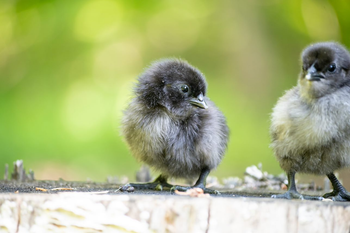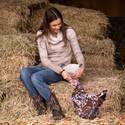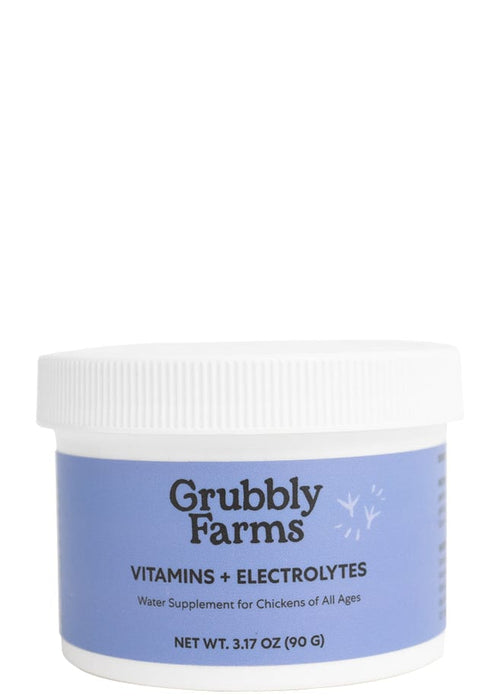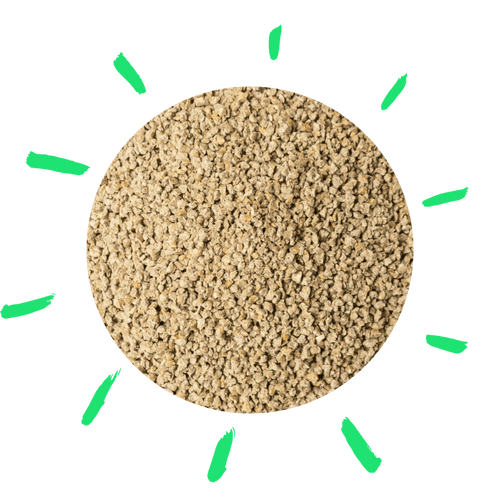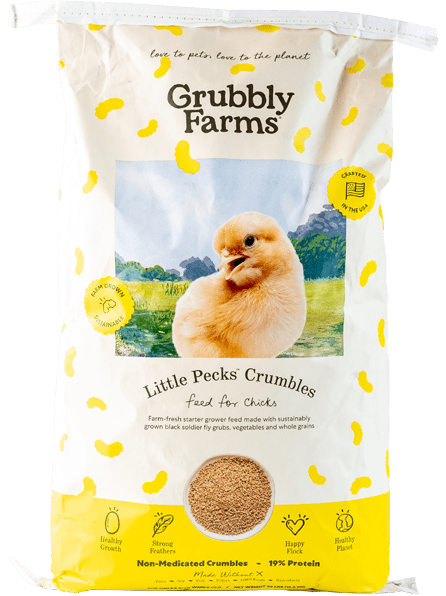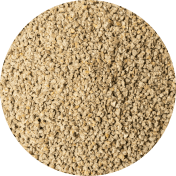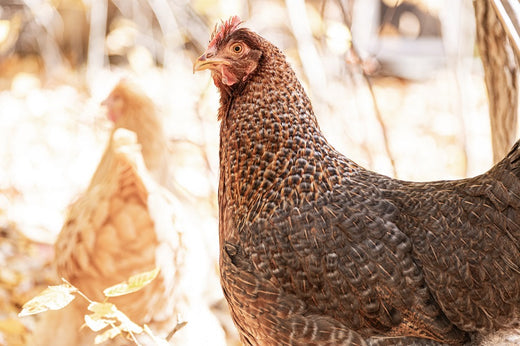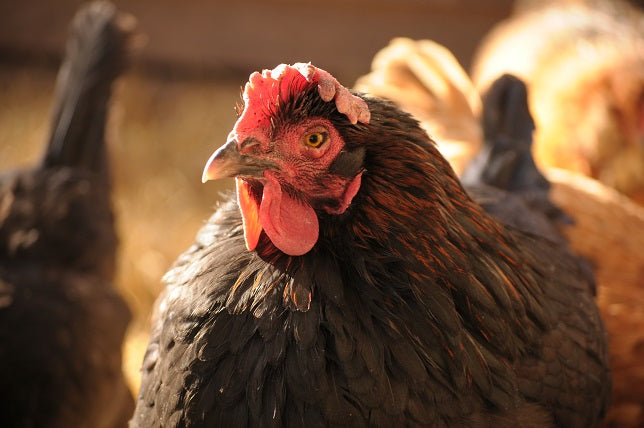Hydration is important for all animals. Chicks need to stay hydrated in order to stay healthy and keep all their body systems in good working order. Dehydration is the condition in which a chick does not have enough water in its body to stay hydrated. It can become a serious condition for young chicks if it is not addressed as soon as possible. Understanding how chicks can become dehydrated and the importance of timely intervention will help you raise a healthy brood!
Common Reasons for Chick Dehydration (Unraveling the Causes)
Chicks have small bodies, which makes them more susceptible to dehydration if they go without water for even a short period of time. However, water withdrawal is not the only cause for dehydration in young chicks. Take a look at these main reasons for why chicks can become dehydrated.
Inadequate Water Supply
The most obvious reason for dehydration in chicks is that they may have inadequate access to water. When setting up the brooder, pay careful attention to the water system you use and where you place it in the brooder. The water system should hold enough liquid to last your chicks for 48 hours and it should be accessible to all the chicks. Make sure each chick can reach the water and that it's not too high off the ground for even the smallest chick.
You should also check the water on a daily basis. Refresh the water if it gets full of brooder debris or droppings. Refill at least once daily so that your chicks always have access to fresh water. Place the water away from the heat source in the brooder. As long as the ambient brooder temperature stays above 60°F, the chicks will freely come away from the heat source to eat and drink. This is healthy behavior for chicks.
Overheating
Chicks who become overheated will implement methods to decrease their body temperature. This includes panting, which is rapid breathing that leads to a loss of body moisture. If the chick is unable to replace those lost fluids at an adequate rate, it will become dehydrated from overheating.
Chicks can become overheated when the brooder temperatures are too high or if they have no way to escape the heat source. Relative humidity levels in the brooder can also play a role in overheating. High relative humidity levels can decrease the amount of moisture a chick loses, however, it also makes it harder for a chick to cool off when it becomes overheated. Keeping moderate relative humidity levels in both the brooder and the incubator is important when raising or hatching chicks.
Stressful Conditions
Stress can lead to dehydration in baby chicks. When a chick is stressed, it will be less likely to eat and drink at a normal rate. Stress also has a harmful effect on all of a chick’s bodily functions, which can compromise moisture utilization. Here are some stressful conditions for chicks that can lead to dehydration:
- Overheating
- Getting chilled
- Overcrowding
- Transportation/shipping
- Changes in the environment
Illness or Weakness
When a chick is ill, it becomes lethargic and less active. Its food and water consumption decreases, which can rapidly lead to dehydration and malnutrition. Growing chicks need proper daily nutrition and any decrease can quickly become fatal. Sick chicks often develop diarrhea, which is a predominant cause of dehydration for any baby animal. Diarrhea causes body fluids to be expelled, and if they are not replaced immediately, the loss of moisture leads to dehydration. Identifying and addressing a sick chick promptly is crucial for catching the condition before it leads to dehydration.
Symptoms of Dehydration in Chicks (Reading the Signs)

Being able to recognize dehydration in chicks as soon as possible is important for catching the condition before it becomes serious. Luckily, there are several signs to watch for that can indicate a chick is suffering from dehydration:
- Sunken composure: sunken eyes, prominent tendons on back of legs
- Lethargy: weakness, inactivity, quiet/not peeping
- Dry/shriveled facial features: dry or pale beak, shrunken and bluish comb and wattles
- Abnormal poops: reduced fecal output, loose, off-color, diarrhea
- Rapid weight loss: leads to shrunken composure and shriveled facial features
For adult chickens, lack of water for four days can lead to dehydration and death. For baby chicks, dehydration symptoms can set in much faster if the chicks suffer from water withdrawal for even a short period of time. Dehydration can lead to death in young chicks if it is not addressed quickly.
How to Help a Dehydrated Chick (A Hydration Intervention)
Thankfully, there are some actionable steps you can take to save a dehydrated chick! As soon as you notice signs of dehydration, jump into action to help that chick become rehydrated and recover quickly. The sooner you catch dehydration, the faster the chick or chicken will be able to recover. Here are some ways to help a dehydrated chick or chicken.
Electrolytes to the Rescue
Electrolytes are natural minerals found in a chicken’s body that aid with water retention. These minerals help the body absorb and utilize water, ensuring that the water a chicken consumes reaches all the body’s cells. A chicken’s body must have balanced electrolyte levels in order to stay healthy and hydrated. Electrolytes also help a chicken maintain balanced pH levels, which are directly related to balanced electrolytes and hydration. When a chicken becomes dehydrated, the electrolytes become compromised and are unable to retain or distribute moisture.
Using electrolyte supplements can help a chick or chicken become rehydrated. The supplemental electrolytes help restore the minerals needed by a chicken’s body. Once the electrolytes are balanced, they can help the body retain and utilize the water a chicken drinks. Commercially available electrolyte supplements, like Grubbly Farms’ Vitamins and Electrolytes supplement, can be added to your flock’s water to help restore the electrolyte mineral balance in a chicken’s body.
Hydration Station Setup
When you are treating a single ailing chick it is important to set up a small brooder or infirmary pen for the sick chick. This prevents the sick chick from becoming stressed by having to fend for itself amongst the other chicks. Plus, healthy chicks don’t need supplemental electrolytes, so separating the sick chick allows you to treat it away from the other chicks.
Ideally, locate the small brooder or infirmary pen within or at least near the brooder where the other chicks are located. Baby chicks don’t like to be alone, so the sick chick will be comforted by being able to hear the other chicks nearby. The small brooder or infirmary pen should have the same features as a regular brooder, which includes a heat source, soft litter, protection from the environment, water, and food.
To help the sick chick recover from dehydration, add supplemental electrolytes to the chick’s water source in the small brooder or infirmary pen. Encourage the chick to drink by gently dipping its beak into the water and waiting for the chick to swallow. If the chick does not willingly drink on its own after that, continue to help the chick drink by frequently dipping its beak in the water.
Check on the chick every hour to make sure it is getting a drink or two. Repeat the process of encouraging the chick to drink every hour until you notice the chick freely choosing to drink on its own.
Gradual Reintroduction to the Flock
Once a dehydrated chick has recovered, it will need to be reintroduced to the rest of the chicks. A chick has recovered from dehydration when its behavior has returned to normal, is no longer experiencing diarrhea, and is drinking on its own. If the chicks are young enough, you can simply add the chick back into the brood and make sure everyone is getting along for the first hour or so of reintroduction. Chicks don’t have a strong hierarchy system in place when they are very young, so new additions are hardly noticed and are usually quickly accepted.
Older chicks and adult chickens who have been quarantined and have recovered from dehydration will need a longer reintroduction period. Follow the steps of introducing chicks and new chickens to your flock for reintegrating quarantined chicks and chickens.

Preventing Dehydration in Chicks (Building a Hydration Plan)
Knowing how to help a dehydrated chick is important, but it is even more important to know how to prevent dehydration in the first place! Here are some preventative measures you can take to help your brood stay hydrated and healthy.
Optimal Brooder Conditions
Maintain the proper temperature in the brooder to prevent overheating or chilling, both of which can lead to dehydration. If you are using a heat source such as a heat lamp, a good guideline to follow is keeping the brooder temperature around 95°F for chicks who are less than one week old. Gradually decrease the temperature by 5°F each week as the chicks mature and become less dependent on an external heat source.
Make sure you take the temperature reading near the floor of the brooder to get an accurate reading of what the temperature is at chick-level. There should also be an area in the brooder where chicks can go to get away from the heat source.
Watch your brood’s behaviors to monitor if they are too hot or cold. Chicks who are huddled under the heat source are too cold. Chicks who spread out away from the heat source are too hot. Chicks who are contentedly peeping and freely moving to and from the heat source are comfortable and happy.
Regular Health Checks
It is important to do regular health checks both for a brood of baby chicks and for a flock of adult chickens. Regular health checks allow you to catch any symptoms of dehydration or illness before they progress too far. Then you can promptly address health issues and help a sick or ailing chicken recover quicker.
Monitor your chicks daily and watch for the signs and symptoms of dehydration. Chicks who are continually inactive or lethargic are ailing. It is also a good idea to do a monthly health check on all the chickens in your flock, giving them a comb-to-toe examination for any issues.
Monitoring Water Consumption
Proper access to water is essential for preventing dehydration. If chickens can’t access water or if they find their water unpalatable, they will cease drinking and become dehydrated. Here are some things to consider when providing your flock with water and ensuring they drink the water you provide:
- Flavor: Make sure the water is not tainted by debris, minerals, or unpalatable medication.
- Temperature: Chickens won’t drink water that is too warm or too cold. They like drinking water that is around 55°F.
- Availability: Your flock should have water available to them 24/7 and it should be easy to access for even the smallest bird in your flock.
- Weather: During cold weather, make sure your flock’s water stays liquid. During hot weather, make sure you refresh the water daily.
It is especially important to monitor your flock’s water consumption during the summer or in warm environments (like the brooder). Chickens drink water to cool down, so they tend to go through water faster during the summer months.
Conclusion

Hydration is essential for raising a healthy brood of chicks and ensuring your backyard flock stays productive. Keeping the brooder at the appropriate temperature and ensuring your chicks have fresh water available to them on a 24/7 basis helps prevent dehydration. If you do suspect dehydration in your chicks or flock, add an electrolyte supplement to their water to help them get rehydrated. Provide your flock with fresh, clean water daily for healthy, hydrated chickens!
Sources:
Preventing dehydration in day old chicks | The Poultry Site
Damerow, Gail. The Chicken Health Handbook: A Complete Guide to Maximizing Flock Health & Dealing with Disease. Storey Publishing, 2015





